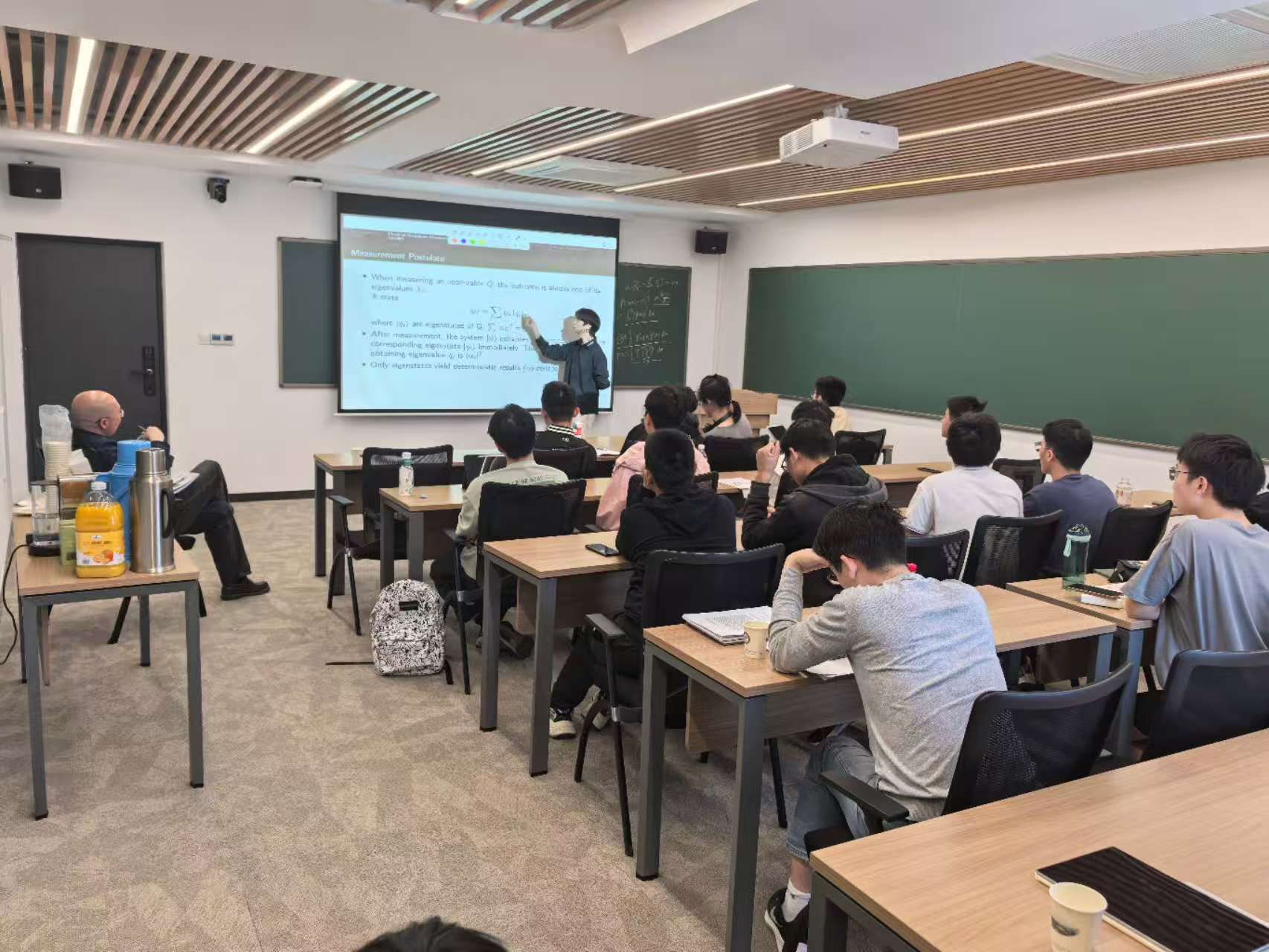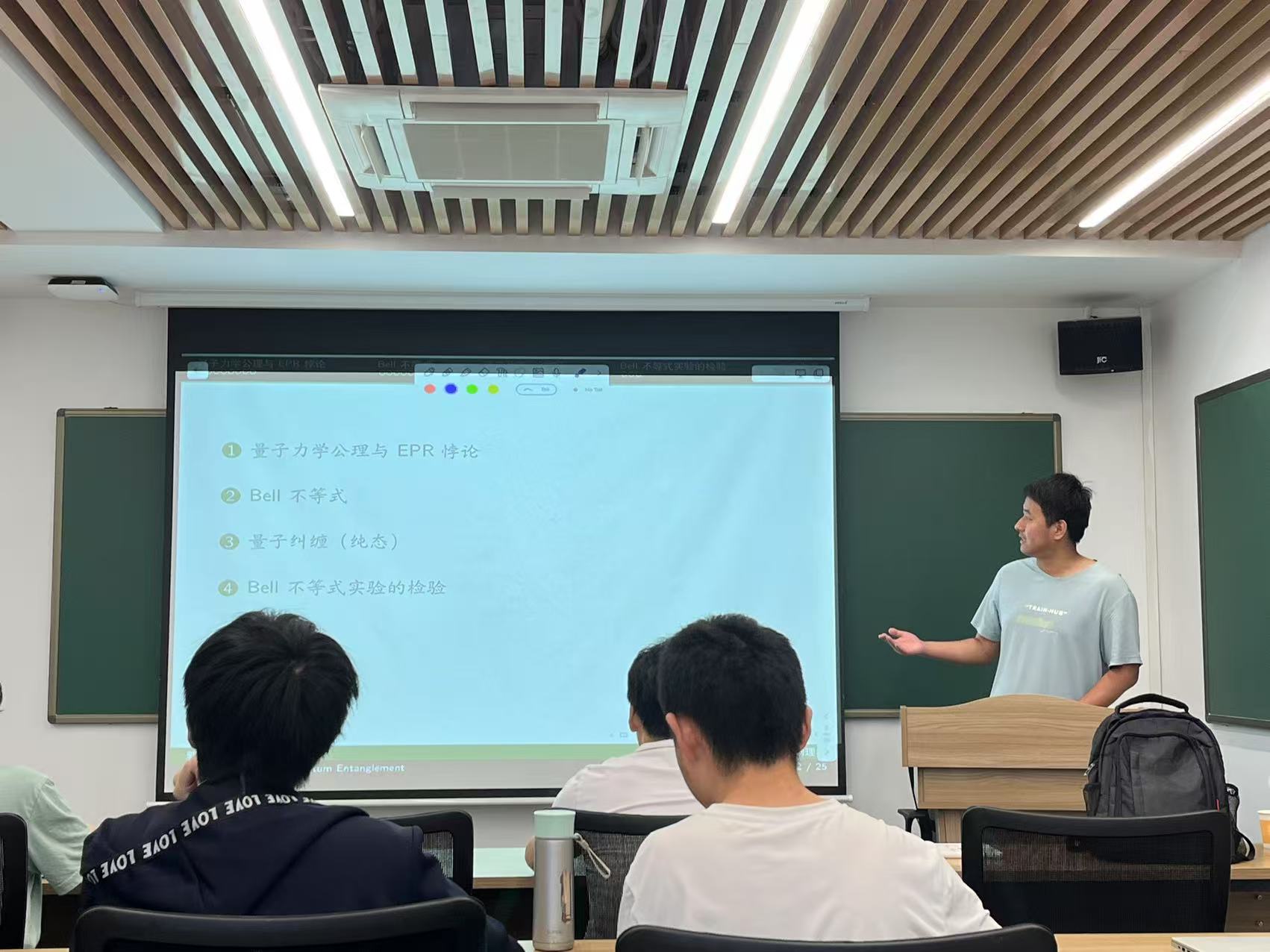Quantum information science, with its tremendous potential to revolutionize traditional information processing models, has become a cutting-edge field drawing global attention. By harnessing the unique properties of quantum systems—such as quantum entanglement and superposition—this discipline seeks to transcend the inherent limitations of classical computation, aiming to achieve higher computing performance, more secure communication, and stronger encryption capabilities. As quantum technology rapidly evolves from laboratory research toward industrial applications, emerging subfields like quantum machine learning are also flourishing. On the centennial of quantum mechanics, quantum information science is often hailed as the “new revolution in physics” of the 21st century.
I had the privilege of participating in an undergraduate seminar series initiated by Professor Gao Li and jointly organized by Professors Let Guanglin and Li Yinan. Here, I would like to share what I have seen, heard, thought, and felt during this quantum information seminar with fellow students passionate about mathematics research, in hope of exploring together the mysteries of the quantum world.
The three professors are dedicated to cultivating quantum thinking among undergraduates, guiding us to build a deep understanding of how quantum technologies disrupt classical information processing paradigms through a rigorous mathematical foundation. By studying classical papers and discussing frontier problems, Professor Gao led us to grasp the frontiers of quantum information research, helping us accumulate valuable experience and a solid foundation for future interdisciplinary research endeavors. The seminar adopted a structure focusing on one topic per week. Each week, one student was responsible for reading relevant books, papers, and background materials and giving a presentation, while faculty members and doctoral students provided academic support and guidance. This format not only effectively strengthened the presenter’s academic and communication skills but also created an open and intellectually stimulating atmosphere, encouraging active engagement and in-depth discussion, thereby deepening our understanding of the mathematical underpinnings of quantum information science.

In the first seminar, Cao Bo, a student from the 2022 Mathematics Honors Program, systematically reviewed the core content of Heisenberg’s Uncertainty Principle. Using the classical double-slit interference experiment as a starting point, he vividly explained fundamental concepts such as quantum superposition states and wave functions, and further derived the mathematical expression of the generalized uncertainty principle through operator commutation relations. Throughout his presentation, Cao ingeniously integrated knowledge from courses such as functional analysis and probability theory, closely connecting abstract mathematical theories with concrete physical phenomena. This mode of explanation—using physical phenomena to drive theoretical reasoning and employing mathematical tools to interpret quantum laws—not only deepened our understanding of key concepts in our major but also allowed us to truly sense the intrinsic connection between foundational disciplines. It clearly demonstrated the crucial role of mathematics in understanding the quantum world and highlighted its importance as a precise language and logical tool in quantum physics.

In the second seminar, Guo Jingyu, a 2022 physics major, delivered a talk titled “Bell’s Inequality and Quantum Entanglement,” offering an in-depth introduction to the fundamental postulates of quantum mechanics, the EPR paradox, Bell’s inequalities and their experimental verification, and the empirical tests of quantum entanglement. He first revisited the core axioms of quantum mechanics and analyzed the physical essence of the EPR paradox, explaining its challenge to the completeness of quantum theory. He then focused on Bell’s theorem, particularly the derivation of the CHSH inequality, and elaborated on the fundamental distinctions between classical theory and quantum mechanics in terms of correlations. Guo also rigorously distinguished, in mathematical form, between pure, separable, and entangled states, using Bell states as examples to demonstrate the nonlocal correlation properties of entangled states. Through this seminar, students gained a deeper understanding of the quantum information field—especially a clearer recognition of the essential differences between quantum mechanics and classical theories—and came to appreciate that quantum entanglement, as a phenomenon beyond classical intuition, serves as a core driving force for the development of quantum information science.
This series of undergraduate research seminars not only showcases the research potential of undergraduates in the field of quantum information but also underscores the crucial role of mathematics in understanding and advancing quantum technologies. The quantum world remains filled with “unfinished” beauty, awaiting our continued exploration and discovery through more rigorous mathematical tools and a more open academic spirit. We look forward to seeing more students join the research of quantum information science and contribute jointly to the advancement of quantum technology.